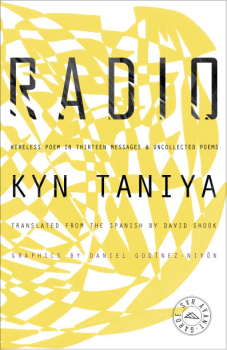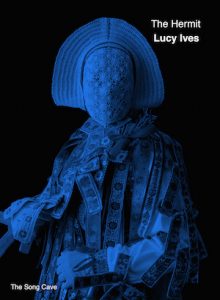 Smooth-Talking Dog by Roberto Castillo Udiarte
Smooth-Talking Dog by Roberto Castillo Udiarte
Translated by Anthony Seidman
The saying “misery loves company” has always irked me for some reason. Perhaps, because the connotation that it often takes is of a miserable person wanting to take you along for the journey. But really, I believe it comes from a more meaningful place – that of empathy. Poets – or any sort of artist for that matter – that can capture the ideologies of a generation, that feel left out of what society has to offer, and articulate it in a way that resonates with people on a large scale are important due to the fact that they make even the outsider feel understood. Their empathetic nature reminds us we all have somewhere we can belong. Yes, while some may romanticize the follies or self-destructive actions of another’s life, the true beauty in the work is in its ability to cross boundaries and resist expectations. Ultimately they capture the humanity in life in places that it may not be easy to find.
Castillo Udiarte is one these poets. His work delves deep into the darkness of human nature, yet somehow comes back with an air of hopefulness. One could say he is a veteran of that path. Since 1985 he has published over half a dozen poetry books in Spanish; however, up until recently very little of his work has been available in the English language. This is all despite the fact that he translated many of his contemporaries in such as Bukowski into Spanish during his lifetime. Now, thanks to Phoneme Media and the poet/translator Anthony Seidman, there is a full-length collection of Castillo Udiarte’s work available in English.
The collection Smooth-Talking Dog gives readers a taste of what many have been experiencing for quite some time. Poetry that bites, poetry that stings, poetry that takes you to the darkest places in order to beat you down, and poetry that picks you back up again. The words Castillo Udiarte writes take you to another world, one of back alleys and corrupt cops, folklore and superstition, family and remembrance, office workers and prostitutes. It is an examination of the human existence of all sides of life that has a deep level of honesty to it. Many of the poems are short yet poignant pieces that envelope in their sentimentality:
Last night,
with the December rain,
the memory of Felipe
entered our house, one of my grandfathers
the one from the eternal garden.I dreamed of him
thirty years younger,
smiling, his face pockmarked,
and his long lizard’s tail.
And in the dream
he told me of his exploits during the reign of Cardenas,
of his arrival at the border,
the construction of the Tijuana dam,
his job as a barman,
his first wife, his adopted son, and
the interminable shots of tequila.A blue
Leakage flooded this morning,
And I don’t know how to explain to my daughters
That they too are part of my grandfather.
During a recent literary festival in Los Angeles, I had the pleasure of seeing Castillo Udiarte read his work. He presented a reprisal of his performative poem “The Magician of the Mirrors’ Final Show”. While Seidman accompanied him on stage providing a translation of the words that asked people from all walks of life to “step right up step right up” to witness the show, Phoneme Media’s editor David Shook walked around holding up a mirror in front of each audience member. The mirror was held awkwardly and intimately close to your face – forcing you to really examine and sit with yourself. At the conclusion of the poem the mirror was smashed. The magic trick here could be many things, but in that moment everyone’s reflection was taken into that same mirror and subsequently destroyed. It did not matter if you were a publisher from Mexico City, a community college professor from the Valley, a store clerk, or anything between. Everyone was captured in that same mirror.
That is the power of the work. It solicits everyone equally. Allowing everyone a moment to be felt. To feel heard. To feel beautiful.
Smooth-Talking Dog is available December 13, 2016 through Phoneme Media.


 The Hermit by Lucy Ives
The Hermit by Lucy Ives